The Fossil Record
The fossil record is the collection of all the preserved evidence of past life, including body fossils, trace fossils, and chemical fossils. It provides a valuable window into the history of life on Earth, allowing scientists to study the evolution of organisms over millions of years.
How Fossils Form
Fossils are formed through a process called fossilization. This occurs when an organism or its traces are buried in sediment, which then hardens into rock over time. The organic material of the organism is gradually replaced by minerals, creating a fossilized replica of the original organism or its traces.
Types of Fossils
There are several types of fossils, including:
- Body Fossils: These are the preserved remains of the actual body parts of an organism, such as bones, shells, and teeth.
- Trace Fossils: These are the preserved evidence of the activities of ancient organisms, such as footprints, burrows, and coprolites (fossilized feces).
- Chemical Fossils: These are the preserved chemical signatures of ancient organisms, such as molecular remnants of DNA, proteins, and other organic compounds.
Importance of the Fossil Record
The fossil record is crucial for understanding the history of life on Earth and the processes of evolution. By studying fossils, scientists can:
- Reconstruct the appearance and behavior of ancient organisms
- Trace the evolutionary relationships between different species
- Explore the development of ecosystems and environmental changes over time
- Understand the impact of major extinction events on the diversity of life
Studying the Fossil Record
Scientists use a variety of methods to study the fossil record, including:
- Fossil excavation and collection
- Geological dating techniques to determine the age of fossils and the rock layers in which they are found
- Comparative anatomy and phylogenetic analysis to understand the relationships between different organisms
- Paleoecological studies to reconstruct ancient ecosystems and environmental conditions
Key Concepts to Remember
When studying the fossil record, it's important to remember the following key concepts:
- The fossil record is an incomplete but invaluable record of ancient life
- Fossils provide evidence for the diversity of life forms that have existed throughout Earth's history
- Understanding the fossil record helps scientists piece together the story of evolution and the history of life on Earth
By understanding the formation, types, and significance of fossils, we can gain a deeper appreciation for the incredible history of life on our planet.
.◂Science Worksheets and Study Guides Fifth Grade. Sound and light energy
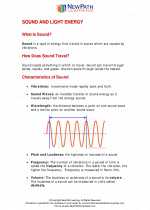
 Activity Lesson
Activity Lesson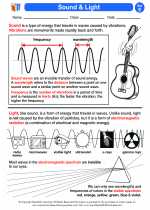
 Worksheet/Answer key
Worksheet/Answer key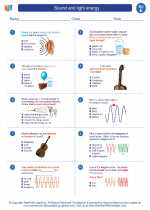
 Worksheet/Answer key
Worksheet/Answer key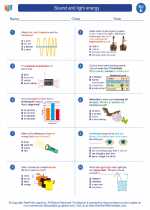
 Worksheet/Answer key
Worksheet/Answer key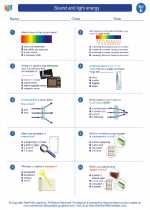
 Worksheet/Answer key
Worksheet/Answer key
 Vocabulary/Answer key
Vocabulary/Answer key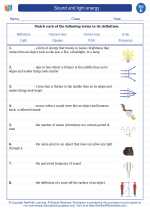
 Vocabulary/Answer key
Vocabulary/Answer key
